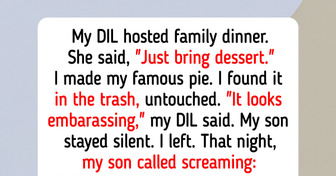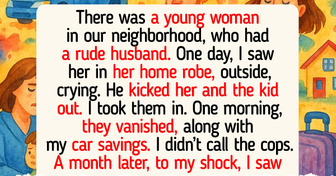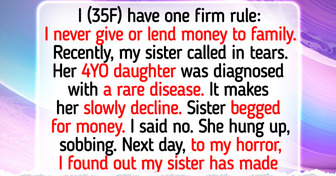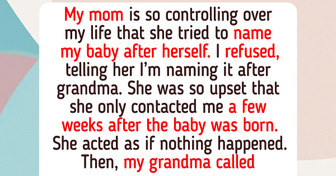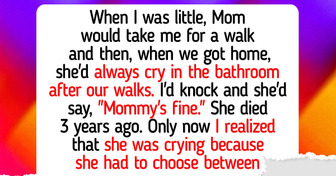21 Stories About Superheroes That Don’t Wear Capes

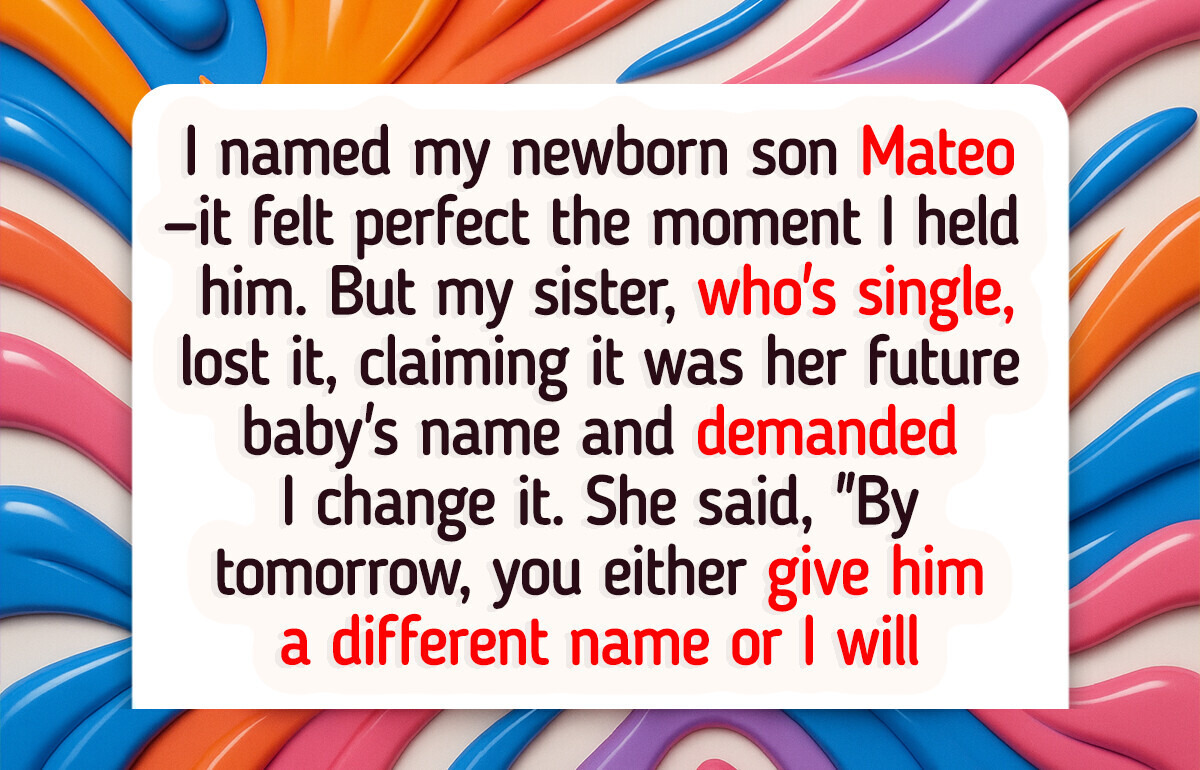
When Emma discovered she was pregnant, it felt like a dream finally coming true. She and her husband, Jack, had been hoping and trying for a child for some time, and the positive test filled their hearts with joy. But as the months unfolded, they realized that not everything would go as smoothly as they had imagined.
Emma wrote to us outlining her situation and asking for help. “Hey, Bright Side! I’ve decided it’s time to share my own story. My name is Emma, and I recently became a mother for the first time. My husband and I were overjoyed when we welcomed our son into the world. After much thought and love, we named him Mateo—a name we both adored and had picked together long before he was born.”
“But what should have been a joyful time quickly turned into a stressful one because of my sister, Rachel.
Rachel had a daughter, Grace, who passed away several years ago. It was a devastating loss for all of us, and we’ve tried to be sensitive to her grief. However, Rachel had always dreamed of having another child and naming him Mateo—her ‘dream boy’s name,’ as she called it.
I didn’t know that when I named my son.”
“When Rachel found out his name, she was furious. She claimed I had ’stolen’ the name from her, even though she had never told me that it held such importance. She demanded that I change my son’s name out of respect for her grief and her future hopes. She said it was the name she had planned for a son she might have one day—and that I had ruined it.”
“I was shocked. I tried to explain that we hadn’t meant any harm and that Mateo was simply the name my husband and I loved. But Rachel wasn’t listening.
She brought our parents into the situation, and surprisingly, they took her side. They said I should change my son’s name to avoid ’causing more pain’ for Rachel. I felt completely betrayed.
Then Rachel crossed a line.”
“She told me, ’If you don’t change his name by tomorrow, I will cut all contact. You won’t see me again, and neither will Mateo. I’ll never accept him with that name. You’ll be choosing a name over your own sister.’
I was stunned. She was asking me to erase the identity of my newborn child for the sake of a hypothetical future son she might never have. And now she was threatening to disappear from our lives altogether if I didn’t comply.
I didn’t give in.”
“I told her gently but firmly that my son’s name was Mateo, and it would remain Mateo. I wasn’t going to set the precedent that emotional manipulation would work, especially when it involved my child. My husband supported me completely.
Rachel hasn’t spoken to me since. My parents still bring it up occasionally, urging me to consider a compromise—maybe calling him by his middle name instead. But I won’t.
I feel sad that it came to this, but Mateo is his own person, and he deserves a name chosen with love, not guilt or pressure.”
“Did I do the right thing?” Emma asks at the end of her letter.
By staying true to your decision while speaking with honesty and care, you can face this challenge without losing connection. Just remember—when it comes to your child’s name, the final choice belongs to you and your partner.



